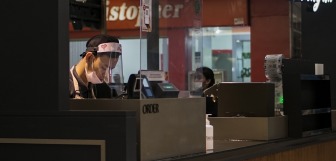Restaurant Franchise Costs: Popular Examples and Their Costs
So you're looking to open a restaurant franchise. Congratulations!
As with any business venture, franchising a restaurant is filled with perils, risks, and obstacles. And in no area do these things arise more than in franchise costs.
In this blog, we'll take you through everything you need to know about franchise costs so that you can make an informed decision about your next business endeavor.
Keep reading to find out more.
What is a franchise?
It's best to start with the basics. What is a franchise?
A franchise is a business model where a company allows individuals to use a company's name, branding, and business model. These individuals are called franchisees. The franchisee will be able to sell the company's products or services in their own store or restaurant.
In the restaurant industry, franchising is a popular way to expand a successful restaurant business. It's seen as a less risky option than opening your own place, since you're already working with the tools of an established brand that many people are aware of.
The franchise system as a business model originated in America in the 1800s, and became very popular in the mid-20th century, with the rise of fast food chains like McDonald's. Franchising allowed the franchiser to reduce the risk of taking on the full responsibility of opening a new store, and the franchise owner had the benefit of working with an established brand.
How do franchises work?
Now that we've answered the question, "What is a franchise?", it's time to move on to how franchises work.
In order for a restaurant business to become a franchise, the franchiser (the restaurant owner who wants to expand their business) will need to create a Franchise Disclosure Document (FDD). This document contains important information about the restaurant business, including:
- The franchiser's background information
- The restaurant's business model
- Financial performance data
- Franchisee fees and royalties
- Franchise territory rights
Once the FDD is created, the franchiser can start recruiting franchisees. The potential franchise owner will need to pay a franchise fee to the franchisor, which will give them the right to open their own restaurant using the franchisor's name, branding, and business model
The franchisee will also need to sign a franchise agreement, which is a contract between the franchisor and franchisee that outlines the rights and responsibilities of both parties.
Some of the key things that are typically included in a franchise agreement are:
- The term of the agreement
- The territory that the franchisee has the right to sell the franchisor's products or services in
- The franchisor's obligations to the franchisee
- The franchisee's obligations to the franchisor
- Renewal and termination provisions
What are the benefits of franchising a restaurant?
Now that we've gone over what a franchise is and how franchises work, it's time to look at the benefits of franchising a restaurant. Franchising a restaurant is different from opening your own restaurant in many key ways.
There are many reasons why restaurant owners choose to franchise their businesses, but some of the most common benefits are:
- It's a less risky way to expand than opening your own restaurant
- You can benefit from the established reputation of the parent company brand and a bunch of existing restaurants
- Franchising is a relatively fast way to expand a restaurant business
- It can be less expensive to franchise a restaurant than to open your own restaurant from scratch
What are the drawbacks of franchising a restaurant?
Of course, there are also some drawbacks to franchising a restaurant that potential franchisees should be aware of:
- You will have to pay franchise fees and royalties to the franchisor
- You will need to adhere to the franchisor's rules and guidelines
- There is always the possibility that the franchise could fail, which could lead to financial losses for the franchisee

Connect with more customers with Epos Now Delivery
Expand your customer reach by promoting your restaurant on the most popular food ordering channels on the market.
- Appear on major delivery platforms like DoorDash, UberEats, and Grubhub
- Take orders instantly with a streamlined ordering process
- Track orders, view customer requests, and review sales data and analytics all in one place
How much does it cost to franchise a restaurant?
Now we get into the real meat of the question. What are franchise costs, you may ask, and how much does it cost to open a restaurant?
Broadly speaking, franchise costs can be divided into two categories: start up costs and ongoing costs. These are the basic types of expenses for a restaurant.
Start up costs are one-time expenses associated with opening a new restaurant. They include items like the initial franchise fee, site selection and leasehold improvements, and equipment.
Ongoing costs are the costs associated with running a restaurant on a day-to-day basis. They include things like labor costs for restaurant, restaurant food cost, and marketing.
Now that we've got a general understanding of franchise costs, let's take a more detailed look at each category.
Startup costs
As we mentioned above, start up costs are one-time expenses associated with opening a new restaurant. This is the initial investment you'll need to make in order to get your franchise off the ground.
Here's a more detailed look at some of the most common financial requirements for startup costs:
- Initial franchise fee: This is the initial investment that a franchisee pays to the franchisor for the right to open their own restaurant. It's important to note that the initial franchise fee is not an investment in the restaurant business - it's a payment for the use of the franchisor's name, branding, and business model. This initial franchise cost will probably be the biggest of all your startup costs.
- Site selection and leasehold improvements: The franchisor will usually have specific requirements for the location of a new restaurant. Once a suitable location is found, the franchisee will need to pay for leasehold improvements, like renovations.
- Equipment: The franchisor will usually provide a list of required equipment that must be purchased by the franchisee.
- Legal costs: There will be various legal costs associated with setting up a new restaurant, like incorporation fees and trademark registration. You may also want to look into restaurant licenses and permits cost.
- Training: The franchisor will usually provide training to the franchisee and their staff. There may be a fee for this training
Ongoing costs
Ongoing costs are the expenses associated with running a restaurant on a day-to-day basis. Here's a more detailed look at some of the most common ongoing costs:
- Labor: This includes salaries and wages for employees, as well as benefits
- Food: The cost of ingredients and other food items that are factored into menu pricing - these can also be understood as restaurant prime costs. Variable costs for a restaurant can also factor in.
- Marketing: The cost of marketing and advertising campaigns
- Rent: The cost of leasing commercial space
- Utilities: The cost of utilities, like water and electricity
- Insurance: The cost of restaurant insurance policies, like liability insurance
- Monthly service fee: Most franchisors will charge their franchisees a monthly or annual fee
While franchise costs can be divided into two broad categories - startup costs and ongoing costs - it's important to remember that these are just estimates. Actual costs will vary depending on factors like the location of the restaurant, the size of the restaurant, and the type of restaurant you're opening.
For instance, if you're planning to open a franchise in a city, some of your startup costs, like your lease, will be more expensive. Heating and cooling costs will be higher if your location has more space and bad insulation. And depending on where you're located, sourcing equipment and staff may be more difficult.
Opening a fast food franchise in a rural area, for instance, may be less expensive, but you'll likely face different challenges. For instance, you may have to pay more for shipping and transportation costs. And you may have difficulty finding qualified staff.
How much do restaurant franchises cost?
Now that we've answered the question, "What are restaurant franchise costs?", it's time to take a look at how much franchises actually cost.
As we mentioned before, startup costs for a franchise can vary widely depending on factors like the location of the restaurant, the size of the restaurant, and the type of restaurant you're opening. With that said, the average startup cost for a restaurant franchise is between $200,000 and $2 million in the US.
Of course, these are just estimates - the total cost will vary depending on the franchisor and the location of the restaurant. For instance, if you're looking to open a fast food franchise like McDonald's, you can expect to pay an initial franchise fee of $45,000. However, if you're looking to open a more upscale franchise, like Ruth's Chris Steak House, you can expect to pay an initial franchise fee of $1 million.
Ongoing costs for franchises are also variable and depend on factors like the location of the restaurant, the size of the restaurant, and the type of restaurant you're opening. However, the average ongoing cost for a restaurant franchise is between $50,000 and $100,000 per month in the US.
Again, these are just estimates - actual costs will vary depending on the franchisor and the location of the restaurant. For instance, if you're operating a fast food restaurant, you can expect to spend less on labor than if you were operating a full-service restaurant.
While a restaurant franchise cost can vary, there are some franchisors who offer programs to help offset the cost of opening a franchise. For instance, McDonald's has a program called the Archive Program which offers financial assistance to qualifying franchisees.
If you're thinking about franchising your restaurant, it's important to do your research and understand all of the associated costs. Working with a franchising consultant can also be helpful in understanding the process and what to expect.
Final thoughts
The cost of running a franchise can get a lot of potential franchise owners down. They need every tool in their arsenal to be able to stay lean and mean.
And there's no better tool for keeping costs in control than a great point of sale system.
Epos Now's restaurant POS system can help franchisees automate ordering, manage staff, and more.
If you'd like to know more about our offer, get in touch below!




